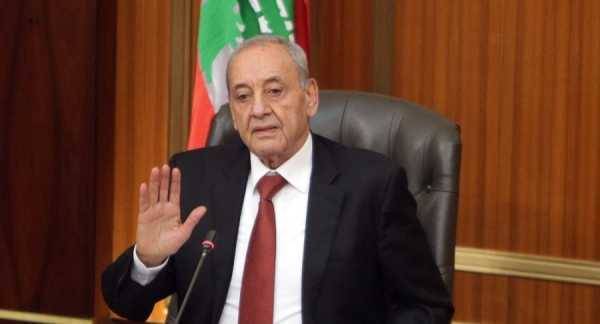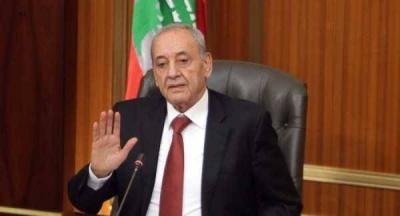Deputy Jibran Bassil preempted the visit of Prime Minister-designate Najib Mikati to the presidential palace yesterday by leaking a list of "options" that may be resorted to if Mikati refuses or fails to form his government before October 31. These options are three, unconstitutional, and even illogical in the opinion of neutral figures close to the president, including:
1. Aoun remaining in Baabda Palace if a presidential vacancy occurs without forming a government, thus "confronting a reality that both Presidents Nabih Berri and Mikati are trying to impose by assuming an outgoing government with the constitutional status of a caretaker, exercising the powers of the presidency," according to Bassil.
2. Revoking Mikati's mandate in Parliament or toppling him and calling for new parliamentary consultations. However, constitutionally, the mandate cannot be revoked either in Parliament or by the president.
3. Forming a transitional government similar to the "1988 government" established by President Amin Gemayel (before the Taif Agreement) to prepare for the election of a new president, which should not be military. This is a surreal situation that is difficult to imagine due to the removal of many powers from the president by the Taif Agreement, including the formation of governments. All these options are "unconstitutional and closer to bluster and intimidation, with Bassil seeking to cash in on them," according to high-ranking political sources.
On the side of the head of the Free Patriotic Movement, "everything is open to all possibilities with one prohibition: allowing the caretaker government to assume the powers of the presidency, even within the framework of managing only essential affairs; otherwise, this reality will be classified as a coup that must be confronted at any cost." Close associates of Bassil have once again promoted the option of ministers from Aoun's camp (who are effectively considered independents) rebelling and not managing affairs if the current government assumes presidential powers. Within this climate, the meeting between Aoun and Mikati failed to make any progress in government formation, especially since it took place under the title of "advice from friends" that "consultation is better than confrontation." No formula to expand the government to thirty ministers was acceptable to Mikati, nor were the limited ministerial amendments proposed by the prime minister-designate acceptable to Aoun, who conditions expanding the scope of amendments and having a decisive say in the names.
The scene in Baabda Palace yesterday appeared closer to a tense morning of back-and-forth without any chemistry or trust between the two men. However, informed sources indicate that a mediation led by General Abbas Ibrahim, the director-general of General Security, which has been ongoing for some time, could lead to breakthroughs in the government scene amid an almost resigned recognition of the difficulty of electing a new president at the set constitutional deadline.
Aoun Is Unwilling to Stay in Baabda
Until yesterday, the close circle around the president affirmed that "there is no possibility or capability for President Aoun to remain in Baabda after October 31. The issue doesn't stop at the constitutional factor, but Aoun himself absolutely rejects this option, and Bassil knows this perfectly well. Therefore, neither is there a desire present, nor is there a proposal to extend the constitutional term as the only means to remain in the presidency, which Aoun has never requested."
A portion of the legal team surrounding the president also knows that revoking the mandate is not possible, and it is even more difficult to push Mikati to apologize, paving the way for the appointment of a new prime minister-designate who would form a government that secures the confidence of the Parliament before the ten days separating the end of the presidential term.
There was a previous attempt to withdraw the mandate represented in a message from the president to Parliament on May 18, 2021, following the stalling of Saad Hariri in forming his government after being designated on October 22, 2020. At that time, Aoun directed his message to Parliament "in accordance with his responsibility regarding the mandate," asking for the message to be discussed "and for the appropriate position, action, or decision to be taken regarding it after the president-designate exceeded the reasonable timeframe," admitting that "the president-designate has become unable to form a government capable of rescue and productive communication with foreign financial institutions and donor countries," stating that "he is imprisoning the formation after the mandate and perpetuating it."
At that time, President Berri called for a session of the Parliament "only to read the president's message," after which a recommendation was issued a few days later by Parliament to "hasten the formation of the government, while considering that Parliament is not authorized to revoke the mandate." Berri's true position focused on considering "the message a blow to the Taif Agreement and an attempt to roll Lebanon back."
There is another legal view that reminds that "the formation of the government is a shared responsibility between the presidents of the republic and the government, thus, obstruction can occur from both parties; so can the responsibility for failure in formation be placed on one president alone."
The paradox is that the crisis surrounding the mandate with Hariri and Mikati is linked by a common denominator: Berri's stance of supporting both men and the fixed "public" stance of Hezbollah, calling for "the formation of a government and not wasting more time," but without supporting his ally Bassil in the battle to topple the mandate or push for an apology for failing to form a government.
In this context, some considered Bassil's "intimidating" messages about revoking the mandate or Aoun staying in the presidential palace if a president is not elected to be aimed at Hezbollah before Mikati himself, linking to the granting of the golden mandate by Sayyed Hassan Nasrallah to Mikati and the "failure" of the party, according to those close to Bassil, to engage in the battle shoulder to shoulder with Aoun and the head of the Free Patriotic Movement to prevent a "possible" presidential vacancy while a caretaker government remains in power.
In the corridors of Ain al-Tineh, President Berri was heard clearly stating to his visitors: "The worst government is better than Aoun staying in the presidential palace. Therefore, I am pushing towards formation and not the opposite, as with Michel Aoun’s calculations, we cannot guarantee anything, including his 'occupation' of Baabda Palace once again and placing himself in a position of usurping power." Berri feared that "Aoun would use the legitimacy card to justify his continued stay in the presidential palace in the event of no president being elected, while allowing a caretaker government to remain and assume presidential powers, by exploiting some constitutional loopholes."




